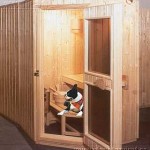There are three types of Glossophilia post that always seem to attract particular interest and attention.
The first is the topic of slang and colloquialisms — the more obscure, quaint, and rude the better. We all want to know where, when and why these strange little words and expressions found their way into the colorful world of our informal banter.
Next is the Great Trans-Atlantic Divide. It’s not the wide ocean that really separates us, nor the fact that we can’t agree on a common system of measurement, DVD-watching or which side of the road to drive on. No, what distinguishes the American from his British counterpart is what comes out of his mouth — and I’m not talking about accents. We speak differently, therefore we think differently. Discuss.
Finally, who doesn’t have a long laundry list of pet peeves when it comes to written and spoken English? No matter how linguistically lofty or proudly proletarian we are when it comes to our choice of words, we all love to prod and pick at those who, like, talk different than us or get on their haughty high horses; the language we all share is an endless and fascinating source of entertainment and amusement, especially when we’re identifying that which bugs and annoys us in other people’s prose.
My father and a couple of his friends (all notably British) have started a list of their favorite pet peeves; here are some of them below, with a few of my own thrown in. (Those marked with an asterisk are heard more in British than American English.) Which of these, if any, annoys YOU most? Please add your thoughts and your own pet peeves in the comments section below.
“Overkill” expressions, which feel the need to introduce superfluous words unnecessarily for extra effect:
- “Track record” – when “record” will do
- “For free” – when “free” will do
- “Kick start” – when “start” will do
- “Head off to” – instead of “go to”
- “Each and every” – when “every” will do
- “At this moment in time” – when “now” will do
The pompous word choice:
- “Boasts” – a favorite expression of realtors: “The kitchen boasts a quarry tiled floor”
- “Commences” – instead of “starts” or “begins”
- “Concludes” – instead of “ends” or “finishes”
- “Deduce” – instead of “understand” or “gather”
- “Thus” – in informal speech or e-mails
The wrong word choice:
- “Literally” used when “figuratively” is meant
- “Coruscating” used to mean harshly critical (confusing it with excoriating), when it really means glittering
- “Prevaricate” used as a synonym for “procrastinate”, when it really has the sense of deviating or diverting by deceit, not necessarily by delaying anything
- “Alternate” instead of “alternative” – as in “Please suggest an alternate route to the airport”
- “Presume” instead of “assume” – as in “I presume you’re taking an umbrella?”
Ugly misuse/abuse:
- “You and I” used when you and I are the objects of the sentence: “He gave it to you and I”
- “Both” applied to two people about each other – as in “they both hated the other” instead of “each hated the other” or “they hated each other”
- “Like” instead of “as if” or “as though” – as in “He felt like he was drowning”
- “However” instead of “but” used halfway through a sentence – as in “She didn’t like him, however she went out with him anyway”
- The difference between “which” and “that”, which isn’t that hard to understand!
- “Whomever” used as a subject instead of “whoever” – as in “Whomever likes this apple can have it”
- “In regards to” instead of “with regard to”, “in regard to”, or “as regards”. And why not use “about”, “concerning”, or “regarding”?
- “Could of”/”should of” instead of “could have”/”should have” – as in “I could of easily beaten him in that match”
- “I could care less” instead of “I couldN’T care less”
- “Only” before the wrong word – as in “I can only talk to you for a minute” (ie. I can’t sing or dance to you)
- “Sung” instead of “sang” in simple past – as in “I sung the hymn this morning”
- “All of” when “all” will do – as in “I ate all of the cookies in the jar”
- “To transition” (ie. “transition” used as a verb) – as in “We will transition over to a new platform”
Marketing/corporate BS:
- As well as some of the pompous words above, prolific use of any of the following, often in combination: “synergy”, “leverage”, “first ever”, “going forward”, “transition” (used as a verb), “out-of-the-box thinking”, “content streamlining”, “strategize”, “bandwidth”, “result-driven”, “paradigm”, “multi-platform”, “functionality”, “empower[ment]”, “top-down”, “e-tailers”, “online assets”, etc.
Meaningless sentence- and gap-fillers (most of these are British-isms):
- “Like” used for no apparent reason mid-sentence (or at the end of a sentence by Brits) – as in “She, like, went ballistic”, or * “Have you been to the shops, like?”
- * “Basically” – as in “Basically I told him to go”
- * “I mean” / “You know” used for no apparent reason mid-sentence. Peter Snow of Channel Four says it in every sentence.
- * “To be honest” or “to be honest with you” starting every sentence
- * “If you like” ending every sentence
- * “Do you know what I mean?” used to fill gaps between sentences
Just …. ugh:
- “First ever” (so awful it gets two entries in this post)
- “Was like” meaning “I said” – as in “I was like ‘You do!'”
- “Thusly”
- “With respect, …” or “With all due respect, …” before launching an attack on someone you think is an idiot
Update, during Superbowl lights-out:
- “Change it up”
- “Space” meaning an abstract area of thought, discussion or virtual territory – as in “You’re invading my personal space”























